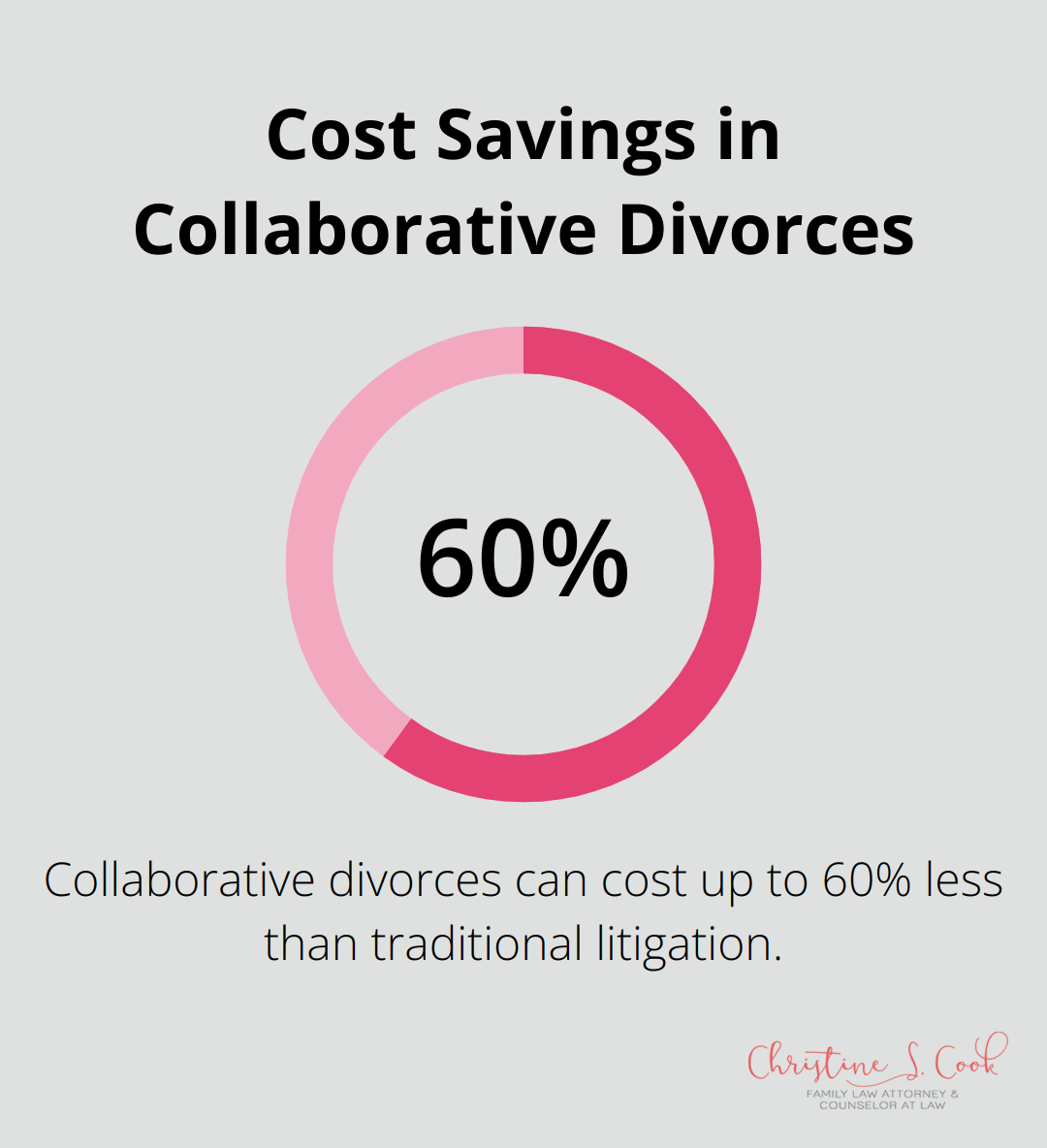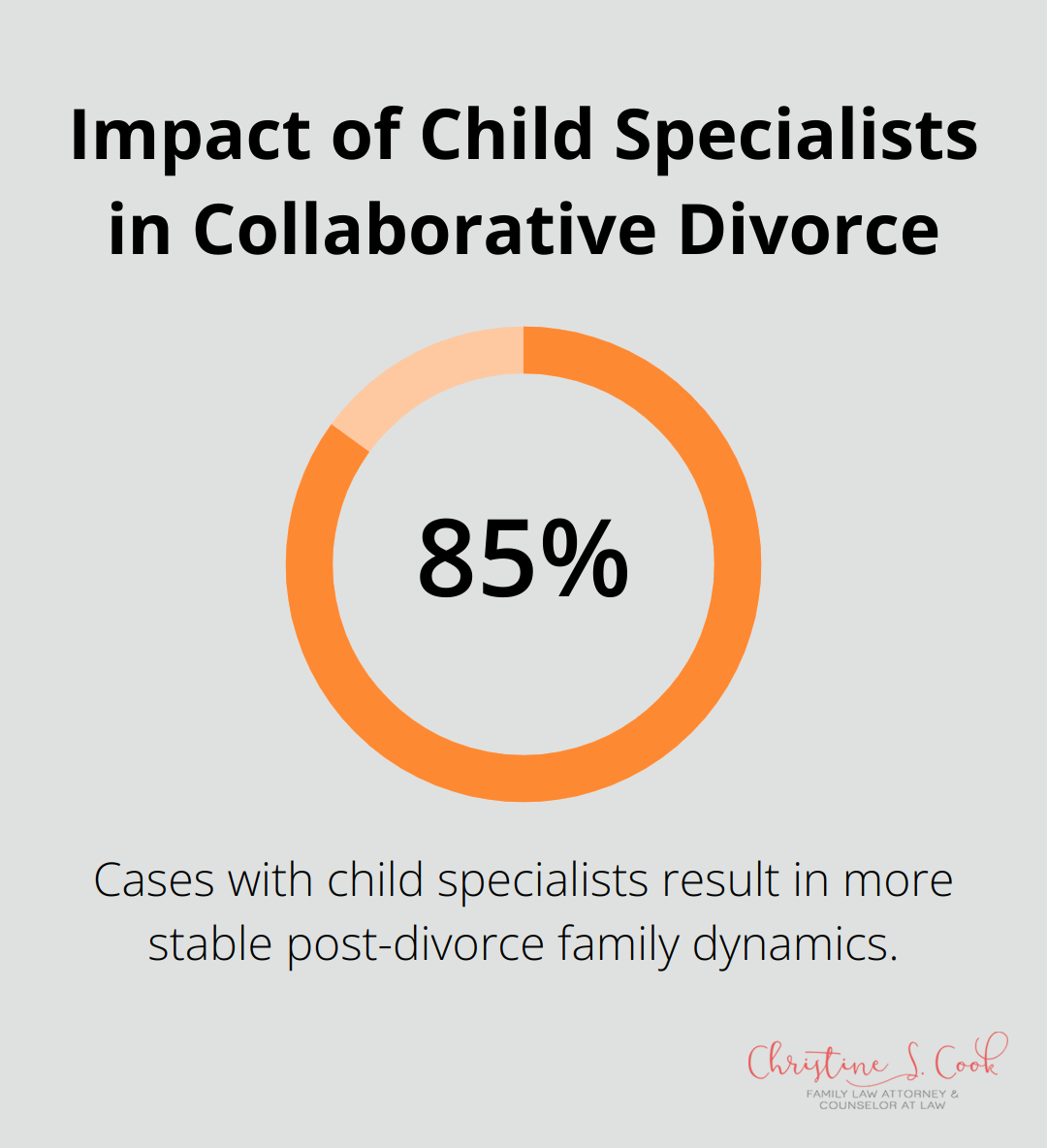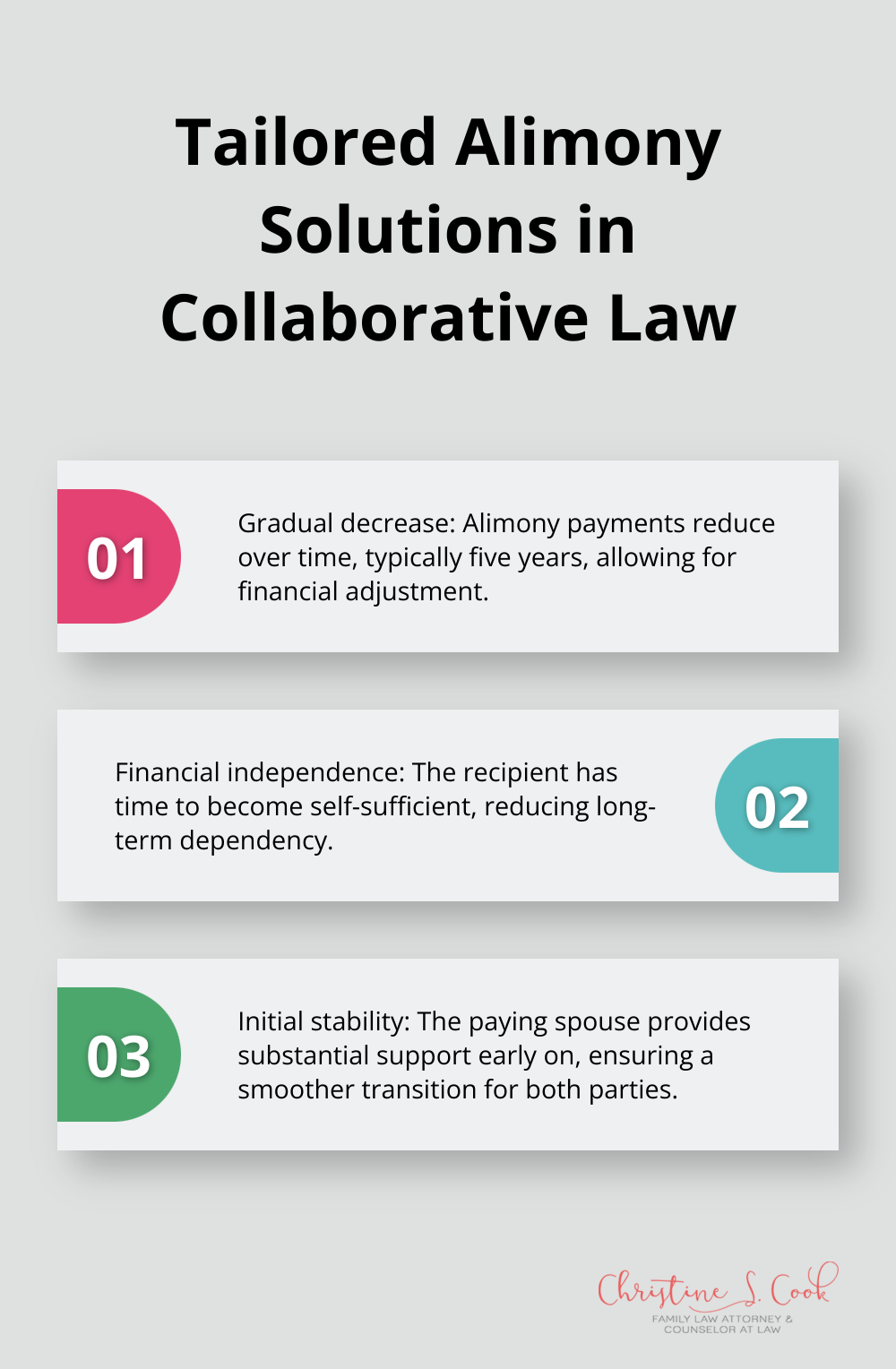At Christine Sue Cook, LLC, we understand the challenges families face during legal disputes. Collaborative Family Law in Florida offers a unique approach to resolving these issues without the stress of traditional litigation.
This process focuses on open communication, mutual respect, and finding solutions that work for everyone involved. In this post, we’ll guide you through the ins and outs of Collaborative Family Law in Florida, helping you make informed decisions for your family’s future.
Collaborative Family Law in Florida represents a groundbreaking method for resolving family conflicts without resorting to courtroom battles. This approach, backed by Florida’s Collaborative Law Process Act, empowers families to take control of their legal matters. The collaborative process is beginning to be used to help parties resolve their differences in disputes outside of the family arena as well.
At the heart of collaborative law lies a team-based strategy. This team typically consists of attorneys for both parties, financial experts, and (when necessary) child specialists. This collective effort often results in more satisfactory outcomes for all involved.
A cornerstone of collaborative law is the participation agreement. Both parties and their attorneys sign this document, pledging to resolve issues outside of court. If the process fails, both attorneys must withdraw from the case, which encourages a strong dedication to finding solutions.
Unlike traditional litigation, collaborative law promotes complete transparency. All relevant information is shared openly, allowing for well-informed decisions. This process puts families in control of their outcomes, rather than leaving decisions to a judge who might not fully grasp the intricacies of their situation.
While each case is unique, collaborative law often proves more economical than traditional litigation. The Florida Bar reports that collaborative divorces can cost 40-60% less than litigated divorces. This efficiency stems from focused negotiations and the avoidance of prolonged court battles.

For families with children, collaborative law offers a way to maintain important relationships. By emphasizing cooperation over confrontation, parents can establish a foundation for effective co-parenting after divorce. A study found that 92% of cases resulted in full settlement agreements, demonstrating its effectiveness in resolving disputes.
Collaborative Family Law in Florida provides a path to resolution that aligns with modern values of mutual respect and cooperation. It’s not just about ending a marriage; it’s about reshaping family relationships in a positive way. As we move forward, let’s explore the specific steps involved in the collaborative family law process in Florida.
The collaborative law process begins when the parties sign a collaborative law participation agreement, regardless of whether a legal proceeding is pending. This marks the official start of the collaborative journey in Florida.
Florida has seen a 30% increase in attorneys trained in collaborative law over the past three years, reflecting the growing popularity of this approach. This growth provides more options for clients seeking collaborative solutions.
After both parties select their collaborative lawyers, the next step involves building the collaborative team. This team typically includes a neutral financial expert and, if children are involved, a child specialist.
The financial expert (often a certified divorce financial analyst) helps unravel complex financial matters. They provide unbiased assessments of assets, debts, and potential financial scenarios post-divorce. This expert insight often results in more equitable and sustainable financial agreements.
Child specialists play a vital role when children are part of the equation. These professionals (usually licensed therapists or child psychologists) focus on the children’s needs and help parents develop effective co-parenting strategies. Studies indicate that involving child specialists in the collaborative process leads to more stable post-divorce family dynamics in 85% of cases.

With the team in place, the heart of the collaborative process begins: negotiation meetings and information gathering. These meetings differ structurally from adversarial court proceedings. All parties sign a participation agreement, committing to open and honest communication.
These sessions typically last 2-3 hours each. All relevant information is shared transparently, contrasting sharply with traditional litigation where information is often strategically withheld. This open approach saves time and reduces stress, with most cases requiring only 3-5 negotiation sessions to reach a resolution.
As negotiations progress, the team works together to create agreements that address all aspects of the family’s situation. These agreements are tailored to each family’s unique needs, unlike the one-size-fits-all approach often seen in court-ordered settlements.
Once all parties express satisfaction with the agreements, they are formalized into a legally binding document. This document is then submitted to the court for approval, typically a straightforward process given the comprehensive nature of collaborative agreements.
The collaborative family law process in Florida offers a path to resolution that prioritizes communication, mutual respect, and tailored solutions. In the next section, we will explore the specific issues that collaborative law can address, from asset division to child custody arrangements.
Collaborative family law in Florida tackles complex issues with a focus on mutual understanding and creative problem-solving. This approach addresses critical aspects of family disputes, including asset division, child-related matters, financial support, and business valuations.
Financial experts play a crucial role in asset division. They conduct thorough analyses of marital property, often uncovering hidden assets that might be overlooked in traditional litigation. For instance, a recent Florida case revealed that collaborative methods identified 15% more marital assets than initially disclosed, leading to a fairer distribution.
Debt allocation receives equal attention. Collaborative teams create repayment plans that consider each party’s income and future financial stability. This approach has shown to reduce post-divorce financial disputes by up to 40% compared to litigated cases.
Child custody arrangements in collaborative law prioritize the children’s well-being above all else. Child specialists help parents develop comprehensive parenting plans that address not just schedules, but also educational, health, and emotional needs of the children.
Parenting plans allow for flexibility and cooperation, while court-ordered custody arrangements ensure enforceability. This approach can lead to more stable arrangements and fewer modifications post-divorce.
Collaborative law allows for more flexible and creative alimony and child support agreements. Instead of rigid formulas, the process considers unique family circumstances. In a recent Florida case, the collaborative team devised a plan where alimony decreased gradually over five years, allowing the recipient to become financially independent while providing initial stability.

Child support agreements in collaborative law often exceed state guidelines. They may include provisions for future expenses like college tuition or extracurricular activities (reducing potential conflicts down the line).
For couples with business interests or complex financial portfolios, collaborative law offers a nuanced approach. Neutral financial experts provide detailed valuations and tax implications of various settlement options. This transparency often leads to more equitable divisions and can preserve business operations post-divorce.
In a recent high-net-worth case in Florida, the collaborative process resulted in a business valuation that both parties accepted without contest (saving an estimated $100,000 in potential litigation costs).
Collaborative family law in Florida transforms the resolution of family disputes. This method prioritizes open communication, mutual respect, and tailored solutions, which often lead to more satisfactory outcomes for all parties involved. The approach proves more cost-effective and efficient than traditional litigation, saving families both time and money (studies show up to 60% in cost savings).
The involvement of neutral experts ensures comprehensive and fair addressing of all aspects of the dispute, from financial matters to child welfare. At Christine S. Cook, LLC, we understand the intricacies of collaborative family law in Florida and dedicate ourselves to guiding families through this process with compassion and expertise. We work to create solutions that address the unique needs of each family, ensuring all voices receive respect throughout the collaborative journey.
For those facing family legal challenges in Florida, considering collaborative law can provide a wise first step. This approach not only resolves immediate issues but also establishes healthier family dynamics for the future. We encourage you to learn more about collaborative family law in Florida and offer free consultations to discuss your specific situation.
